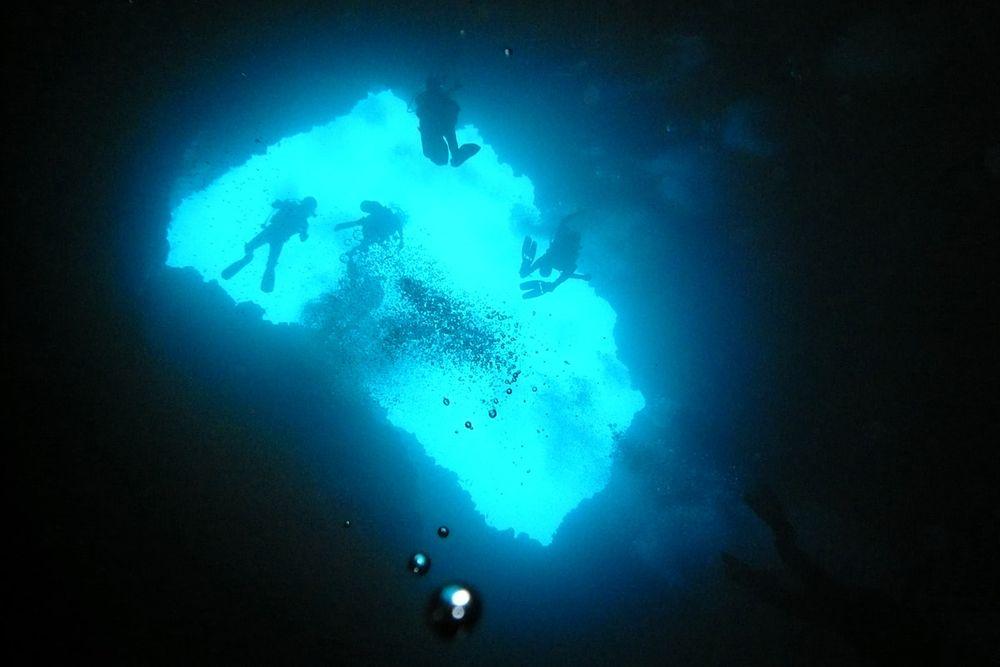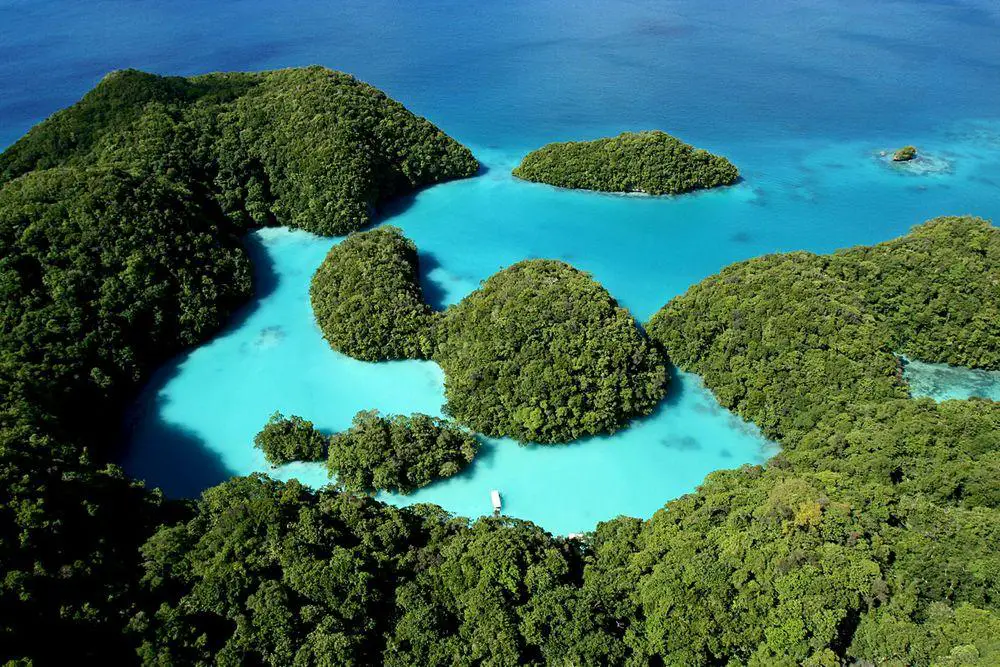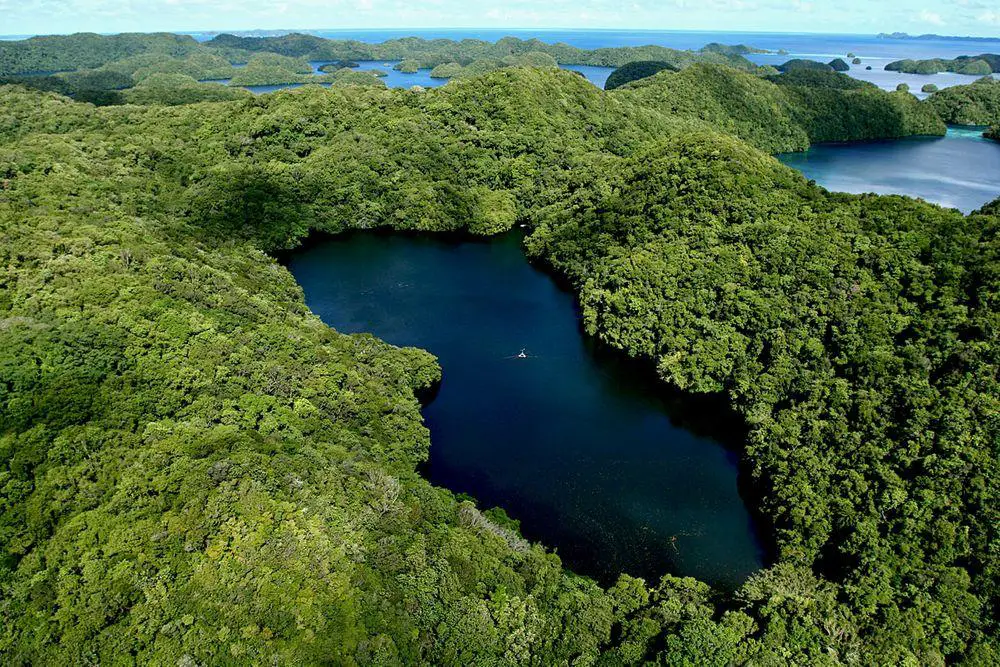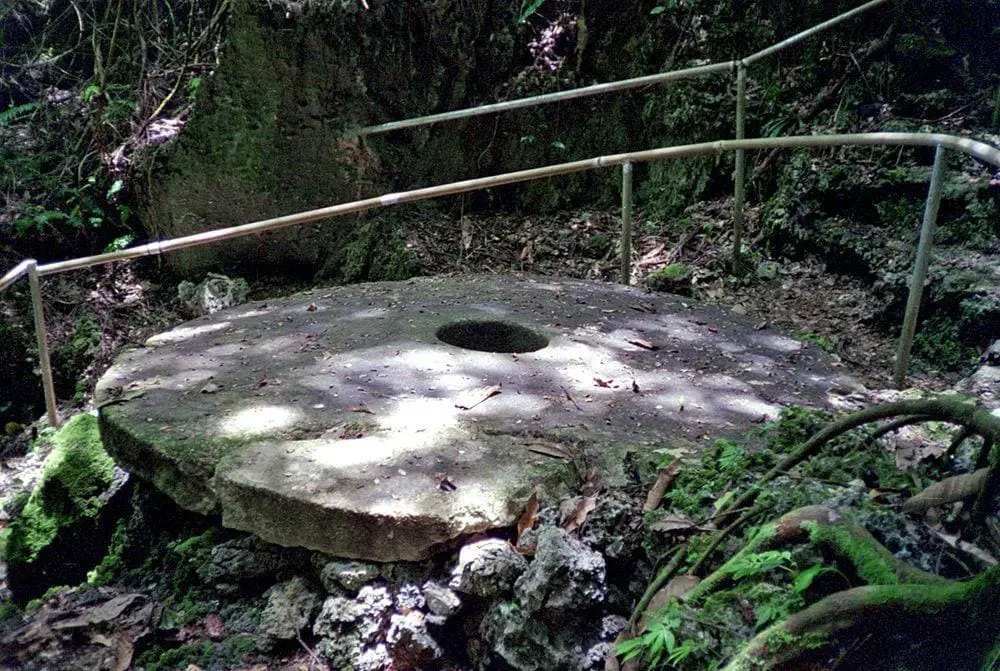Wondermondo 🢖 World 🢖 Wonders of Australia and Oceania 🢖 Wonders of Micronesia 🢖 Wonders of Palau
Territory
Wonders of Palau

 Highlights
Highlights
Although Palau is small in size, it offers a surprising diversity of interesting monuments. Several of these monuments are true wonders and there are several unresolved mysteries related to Palau.
Map with the described wonders
If you see this after your page is loaded completely, leafletJS files are missing.
 Top 25 wonders of Palau
Top 25 wonders of Palau
Geological wonders
Rock Islands (Palau)
Koror and Rock Islands
More than 200 amazing small limestone islands, often mushroom-shaped and covered with lush tropical vegetation. Unique landscape element, especially when looking from the air.
Yikrel a Bub (Blue Holes, The Temple of Doom)
Koror and Rock Islands
These unusual monuments of nature were created at times when the sea level was considerably lower. Four deep holes in 1 – 2 meters deep seabed unite in an enormous underground hollow 40 meters below. Cave has two more openings to the side – through the submerged ancient sea cliff. Impressive blue light rays enter through the holes in the cave.
Chandelier Cave (Iiel Temekai)
Koror and Rock Islands
Limestone cave with dripstone formations, entrance, and part of the cave is located below sea level, below water. Four chambers.
Milky Way (Palau)
Koror and Rock Islands
Cove with bright turquoise-colored water. The bottom consists of bright white limestone mud believed to have curative powers although this has not been proven.

Siaes Tunnel
Koror and Rock Islands
Impressive tunnel under the seawater, entrance 4 – 20 meters deep, bottom – up to 60 meters deep. Tunnel is lighted through 3 larger side openings and numerous smaller openings. Created by erosion processes in times when seawater level was lower than now.
The Arch (Palau)
Koror and Rock Islands
Weathering has created a natural arch that can be easily passed in a boat. The arch is 15 meters wide and 9 meters high.
Taki Falls
Ngardmau
A beautiful, 30 meters high and 37 meters wide waterfall, the largest in Palau.
Tabecheding Falls
Ngatpang
Some 6 meters high waterfall floats down a steep slope, located in a beautiful setting.
Biological wonders
Jellyfish Lake (Ongeim’l Tketau)
Koror and Rock Islands
A unique marine lake with an area of 5.0 ha, has an underground connection to the sea. Stratified in two layers that do not mix. Isolated from the sea 12,000 years and contains a distinct population of two species of jellyfish – endemic Mastigias cf. papua etpisoni and most likely endemic Aurelia sp. Millions of these jellyfishes make strict daily migration around the lake. Four more marine lakes with jellyfish on the nearby islands but Jellyfish Lake is the only one open to tourists. The number of jellyfish has reached up to 31 million (January 2005), currently some 5 million.

Uet era Ngermeuangel
Koror and Rock Islands
Marine lake (4.3 ha) with its own subspecies of jellyfish Mastigias cf. papua remeliiki and Moon Jellyfish Aurelia sp.
Forest at the foot of Mt. Ngerchelchuus
Ngardmau
An ancient, largest forest in Palau with enormous trees, an important habitat for endemic Palauan birds.
Goby Lake
Koror and Rock Islands
Round marine lake (2.1 ha) with its own subspecies of jellyfish Mastigias cf. papua nakamurai.
Uet era Ongael
Koror and Rock Islands
Small marine lake (0.9 ha) with its own subspecies of jellyfish Mastigias cf. papua remengesaui.
Lake Ngardok
Melekeok
The only notable freshwater lake in Palau and the whole of Micronesia. Contains a population of saltwater crocodiles (Crocodylus porosus), an important habitat for several endemic Palauan birds.
Archaeological wonders
Quarry of Yap stone money in Airai
Airai
A huge piece of the unique Yap stone money, unfinished pieces of stone money nearby as well as the metal toys for production.
Sculpted hills of Ngchemiangel
Aimeliik
Relief of the island has been sculpted and there have been created extensive terraces. Created in the 5th – 16th century AD.
Ucheliungs Cave (Ucheliuns Cave)
Koror and Rock Islands
Cave with an entrance in shallow seawater. 2,900 – 1,400 years old burial site of the early inhabitants of islands. Burials belong to extinct dwarf people, possibly weighing just 28 – 47 kg.
Omedokel Cave
Koror and Rock Islands
2,300 – 1,400 years old burial site of the early inhabitants of islands and some 1000 years old burials of newer inhabitants. Older burials belong to extinct dwarf people, possibly weighing just 28 – 47 kg.
Badrulchau
Ngarchelong
Originally there were 52 mysterious stone monoliths (now 37). Roughly cut faces have been hewn in 6 of these stones. Location of former bai – men’s clubhouse, built around 161 AD.
Taberrakl petroglyphs
Koror and Rock Islands
The most abundant petroglyph site in Palau, includes many handprints.
Odalmelech
Melekeok
Six enormous, megalithic stone carvings – faces, roughly 1,100 years old.
Nbusala
Sonsorol
Ruins of monolithic structures, most likely dating before the arrival of present-day inhabitants of Sonsorol in the 17th century (pre-Moro time).
Olechukl Iars (Ulong, Oolong petroglyphs)
Koror and Rock Islands
Intricate red-painted petroglyphs left by ancient Palauans on the walls of shallow grottoes.
Architecture wonders
Ngerulmud
Melekeok
One of the most iconic parliament buildings in the region, a group of impressive Neo-Classicism-style buildings, was built in 2006.
Bai ra Airai
Melekeok
The oldest men’s meeting house in Palau, some 200 years old.
 Recommended books
Recommended books
The Palau Guide: A guide to yachting and tourism in Palau
This book provides an in-depth look at Palau for visitors by land and sea. The first half of the book delves into the culture and history of Palau with suggestions for tours, hikes, diving, and cultural activities. The second half of the book provides a comprehensive set of information for the visiting yachtsman, from weather, parts, and services, to charts, routes, and anchorages.
Micronesia and Palau (Other Places Travel Guide)
Micronesia and Palau have long been known to diving enthusiasts for some of the most intriguing and spectacular dive spots on earth. Yet as the reputation of these islands spread, more travelers are looking to escape the modern Western world and become transported to a calmer, slower pace of life. The writers of this guide all lived, worked, and played on the islands which they write about. First-hand knowledge, cultural insight, and personal recommendations allow visitors to feel like locals while enjoying the indisputable beauty of these islands and people.




